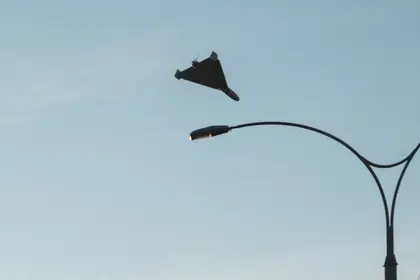Germany's embattled Chancellor Olaf Scholz will face parliament Monday to trigger the process towards February 23 elections, in the hope that he can weather a political crisis and win a second term.
Scholz, 66, whose coalition collapsed last month, has called a confidence vote which he is expected to lose, clearing the way for the dissolution of the Bundestag and a return to the ballot box.
JOIN US ON TELEGRAM
Follow our coverage of the war on the @Kyivpost_official.
Friedrich Merz, 69, the top candidate of the conservative CDU-CSU opposition alliance of ex-chancellor Angela Merkel, is well ahead in opinion polls.
The political contest comes at a time when Europe's top economy is struggling to revive its stuttering export-led industrial sector amid high energy prices and tough competition from China.
Berlin also faces major geopolitical challenges as it confronts Russia over the Ukraine war and as Donald Trump's looming return to the White House heightens uncertainty over NATO and trade ties.
Merz, a former corporate lawyer, long rained withering fire on the motley alliance of the chancellor's Social Democrats (SPD), the left-leaning Greens and the liberal Free Democrats (FDP).
Coalition bickering over fiscal and economic woes came to a head when Scholz fired his rebellious FDP finance minister Christian Lindner on November 6, the very day Trump was re-elected.
The departure of Lindner's FDP left Scholz at the helm of a minority government with the Greens of Vice Chancellor Robert Habeck and Foreign Minister Annalena Baerbock.

A Hard Decision That’s Easy to Make – Serbia at a Turning Point
Unable to pass major bills or a new state budget without opposition support, the government is now limping along, with all sides in election mode.
Germany's political turmoil comes as key EU partner France has also been roiled by crisis and gridlock which saw President Emmanuel Macron on Friday asking centrist Francois Bayrou to try to form a new government.
- 'Plagued by doubt' -
Germany's lawmakers will meet from 1:00 pm (1200 GMT) in the lower house, with Scholz speaking first, followed by a debate and then the vote.
To ensure the no-confidence outcome, the Greens have pledged to abstain, after the far-right Alternative for Germany (AfD) had threatened to derail the process by voting for Scholz.
If Scholz loses the vote, as expected, President Frank-Walter Steinmeier can move to dissolve the legislature and formally declare the agreed February 23 election date.
German politics in the post-war era was long staid, stable and dominated by the two big-tent parties, the CDU-CSU and the SPD, with the small FDP often playing kingmaker.
The Greens emerged in the 1980s, but the political landscape has been further fragmented over the past decade by the rise of the AfD, a shock for a country whose dark World War II history had long made far-right parties taboo.
Formed as a eurosceptic fringe party, the AfD grew into a major political force when it protested against Merkel's open-door policy to migrants, and now has around 18 percent voter support.
While other parties have committed to a "firewall" of non-cooperation with the AfD, some of them have borrowed from its anti-immigration and anti-Islam rhetoric.
After the fall of Syrian president Bashar al-Assad, some CDU lawmakers were quick to demand that the around one million Syrian refugees in Germany return to their home country.
The winter election is all the more heated as it comes at a time "the German model is in crisis," said Berlin-based political scientist Claire Demesmay of Sciences Po Paris.
Germany's prosperity "was built on cheap energy imported from Russia, on a security policy outsourced to the USA, and on exports and subcontracting to China," she told AFP.
Demesmay said the country was now in a sweeping process of reorientation which is "feeding fears within society that are reflected on the political level".
"We can see a political discourse that is more tense than a few years ago. We have a Germany plagued by doubt."
You can also highlight the text and press Ctrl + Enter










